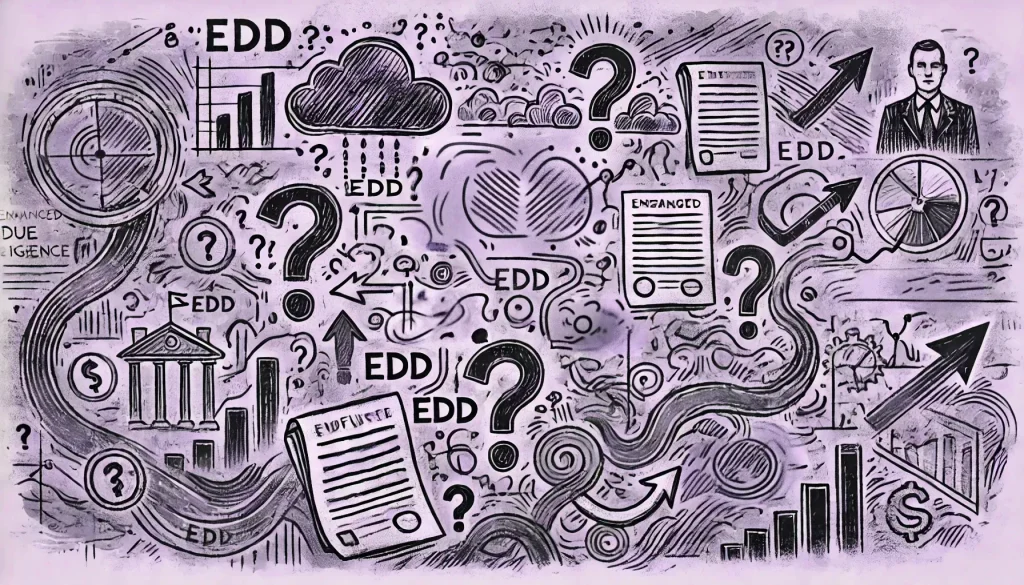Introduction
Navigating the complexities of Source of Funds checks in commercial transactions can be daunting for any legal professional. These checks are crucial for ensuring compliance with Anti-Money Laundering (AML) regulations and other legal standards. Understanding the regulatory expectations is essential to performing effective SoF checks. Legal professionals face several challenges, such as handling intricate financial structures, obtaining detailed financial information from clients, and managing transactions across multiple jurisdictions. By leveraging advanced technology solutions, maintaining rigorous due diligence, and adopting best practices, legal teams can effectively tackle these challenges. This approach not only ensures robust compliance but also protects firms from potential legal and reputational risks.
During a recent Compliance Collective session, various aspects of SoF checks were discussed, shedding light on best practices, regulatory requirements, and the role of technology in streamlining these processes.
Understanding Source of Funds Checks
SoF checks involve verifying the origin of funds used in transactions to ensure they are not derived from illegal activities. These checks are essential for complying with Anti-Money Laundering (AML) regulations and other legal requirements.
The Regulatory Perspective
The Solicitors Regulation Authority (SRA) emphasises that Source of Funds checks are not confined to residential property transactions. According to the SRA, any transaction involving the movement of funds or assets must consider SoF requirements. This broad application means that commercial transactions, such as share purchase agreements, business acquisitions, and company setups, also fall under this scrutiny.
Challenges in Commercial Transactions
Commercial transactions often present unique challenges for SoF checks:
- Complexity of Transactions: Commercial transactions can involve multiple parties, jurisdictions, and financial structures, making SoF checks more intricate.
- Resistance from Clients: Some clients, particularly longstanding ones, may resist providing detailed financial information, perceiving it as intrusive.
- Lack of Clarity: Firms sometimes face ambiguity regarding whether they need to perform SoF checks if they are not directly handling funds.
Real-World Examples and Insights
During the meeting, participants shared their experiences with SoF checks in commercial contexts:
One firm dealt with a client loaning money to their ex-spouse, where the challenge was determining the extent of due diligence required since the funds had already been transferred.
Another case involved verifying the legitimacy of substantial income from food delivery platforms, which required cross-referencing invoices and examining the client’s business operations.
The Role of Technology
Technology plays a crucial role in enhancing SoF checks:
- Digital Platforms: Tools like digital SoF analysis platforms help automate the collection and verification of financial information, reducing the burden on legal teams.
- Bank Statement Scanning: Advanced solutions are being developed to scan and analyze bank statements from various financial institutions, including those not integrated into open banking systems.
- AI and Machine Learning: These technologies can assist in detecting anomalies and patterns that may indicate suspicious activities.
Best Practices for Legal Teams
- Comprehensive Client Risk Assessment: Regularly update client and matter risk assessments to ensure all potential risks are identified and mitigated.
- Clear Documentation: Maintain thorough records of all SoF checks and the rationale behind continuing or discontinuing a transaction.
- Regular Training: Ensure that all team members are well-versed in the latest regulatory requirements and best practices for SoF checks.
- Leveraging Technology: Adopt advanced technology solutions to streamline SoF checks and reduce manual effort.
In Conclusion
Navigating the complexities of Source of Funds checks in commercial transactions can be daunting for any legal professional. These checks are a critical component of legal compliance, and understanding the regulatory expectations is essential. By leveraging advanced technology and maintaining rigorous due diligence, legal teams can effectively manage SoF checks. This approach not only ensures robust compliance but also safeguards firms from potential legal and reputational risks.
Maximise your compliance!
Discover how our innovative courses can transform your firm’s skills and knowledge. Ensure your team always stays compliant, knowledgeable, and motivated to drive your organization forward.




